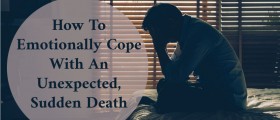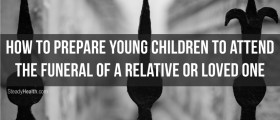
Grief strikes us when we lose someone or something we liked or loved very much. Thus, every kind of loss is bound to trigger a certain extent of grief. The feeling is a mixture of many sensations and mental states, being quite hard to explain. A death of a loving person, end of a relationship and many other bereavements of this type can lead to grief. Basically, grief manifests differently in each individual. However, some of the feelings mentioned below may be present in the vast majority of cases.
Acceptance
One of the most important stages of grief is acceptance and it usually comes last, especially when it comes to death of a loved one. People are not ready for these occurrences and death is something we do not understand yet. Thus, people are not ready to let go and accept that death is permanent. However, at some point of their grief, they manage to understand this.
Anger
As for grief due to breakups, divorces and losses of relationship, anger plays a crucial part in grieving. This emotion rarely appears in grieving over someone's death. This anger is usually directed towards innocent people such as doctors, family members etc. However, the only person connected with the anger is either the one who left or the one who is left.
Denial
Denial is also a possible stage of grief. It is one of our most basic defense mechanisms. Basically, we are incapable of coping with the loss we have endured and experienced. Thus, we ignore this fact and act as if it did not happen.
Additional Stages of Grief
When grief strikes one seriously, he/she may give in to depression, feeling extremely negative and being reluctant to enjoy life any further. Depressed people are prone to suffering from insomnia, concentration issues and lack of appetite, among many other health and lifestyle problems. If the depression gets out of hand, the depressed individual may need professional medical help.
When people, especially children, deal with grief, fear is also a possible emotion which appears on the surface. Insecurity mixed with grief gives rise to fear, mostly in cases of death of a loved one.
Guilt and Shock
Guilt is a common part of grieving in humans. Namely, no matter how hard we tried to help the person we loved, we are bound to blame ourselves once the person passes away. We tend to believe that matters could have been different if we had acted differently. However, later, people usually realize that nothing could have been done to prevent the loss.
Every kind of loss including divorce, breakups and other parting of ways results in a shock due to the change of lifestyle afterwards. People who end up alone have to fill in the gaps left by those who are gone and this period of accommodation can be quite shocking.

















Your thoughts on this
Loading...